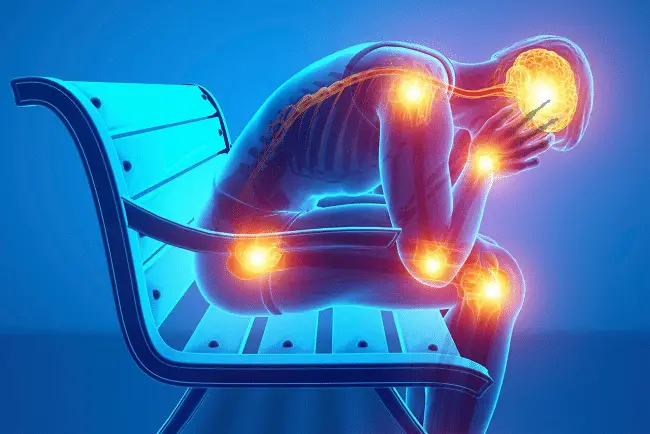Understanding Decompression Sickness: Dangers and Symptoms? Scuba diving comes with a lot of risks, that’s a given. Humans were not intended to be underwater, unlike our aquatic friends, thus we face many risks when we swim.
The dangers we take are huge. When we scuba dive, we’re basically a buffet for any hungry predator. We may run out of oxygen or have any equipment malfunction. Water pressure can also damage body components. Decompression sickness is the biggest risk divers encounter when diving, but what is it and what is its most prevalent symptom?
What is decompression sickness?
Decompression sickness occurs during rapid decompression. It is caused when nitrogen bubbles form in the tissues, blood, and around the joints and can be extremely painful. It is commonly known as the bends and can have a number of nasty and destabilizing symptoms.
The most prominent symptom

The most prominent and arguably the nastiest symptom of decompression sickness is the pain it causes in the joints. This symptom is what made decompression sickness earn its nickname, ‘the bends’, and can leave the victim unable to move or with horrible spasms. This of course is extremely dangerous when underwater, as you are dependent on movement in order to resurface. The joint pain is caused by nitrogen bubbles forming around the joints and putting pressure on the joint links. This symptom can occur quite rapidly and within a few movements, a diver can find themselves unable to move their legs or arms without experiencing excruciating pain.
People who experience joint pain are unable to move their neck from side to side, limiting their own visibility and putting them in a world of trouble. This symptom of decompression sickness is considered the most dangerous because it completely takes away your mobility, which is a necessary tool when you are underwater. Other symptoms can be dealt with as long as you have a diving buddy with you, but no matter how much time you have practiced along with how long it takes to learn scuba, nobody can prepare for having to help an immobile human resurface.
Other symptoms of decompression sickness
Now that you know about the most prominent symptom of decompression sickness, you may be wondering what other symptoms you can expect to encounter if you are exposed to decompression sickness.
Fatigue
Joint discomfort and fatigue are the worst decompression sickness symptoms. Fatigue might appear suddenly and is the last thing you want many meters underwater. Scuba diving is demanding and needs work to navigate. If you are fatigued and drained, you are in trouble. Unless you have a buoyancy device, returning to the water can be tough, especially if you’re tired. Work your way to the surface when you feel even somewhat weary.
Headaches

Another nasty symptom of having decompression sickness is headaches. Headaches can usually be managed by taking the necessary pills and having a glass of water and a sit-down. However, you can’t exactly do that when you’re underwater so they can be quite a pain. Headaches can distort your judgment, leading you to take greater risks that could threaten your safety, so if you start to feel them, get out of the water and rest.
Numbness
If you start to feel numbness in your limbs, then you could be experiencing decompression sickness. Generally speaking, numbness is never good to have, even on land. This can challenge your movement and make even basic swimming difficult. Body numbness may even lead to de personalization, as your surroundings around you won’t feel entirely there.
Clouded thoughts
Clouded thoughts and confusion is another very dangerous symptom of decompression sickness. One of the main things that you will depend on during scuba is being able to think on your feet and react quickly to any circumstances. Not being able to think straight may also lead to some sort of injury, so be sure to look into what to wear under a rash guard so that you have some extra layers of protection under your wet-suit. Also be sure to scuba with a buddy, as they will be able to tell if you aren’t acting yourself.
